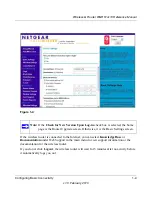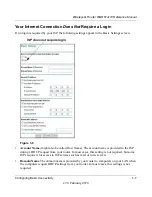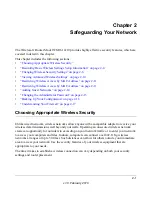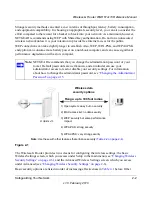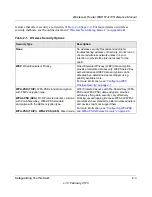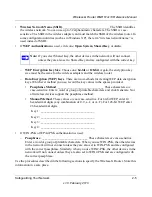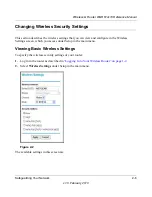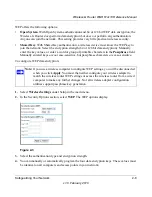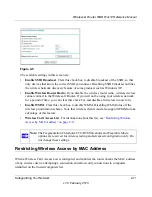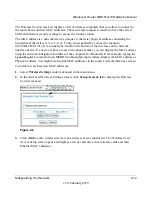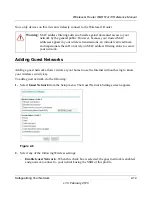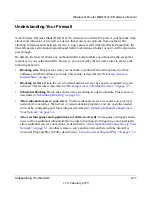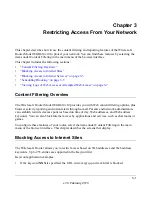
Wireless-G Router WGR614v10 Reference Manual
Safeguarding Your Network
2-5
v1.0, February 2010
•
Wireless Network Name (SSID)
.
______________________________
The SSID identifies
the wireless network. You can use up to 32 alphanumeric characters. The SSID
is
case-
sensitive. The SSID in the wireless adapter card must match the SSID of the wireless router. In
some configuration utilities (such as in Windows XP), the term “wireless network name” is
used instead of SSID.
•
If
WEP Authentication
is used, circle one:
Open System
,
Shared Key
,
or
Auto
.
–
WEP Encryption Key Size
. Choose one:
64-bit
or
128-bit
. Again, the encryption key
size must be the same for the wireless adapters and the wireless router.
–
Data Encryption (WEP) Keys
. There are two methods for creating WEP data encryption
keys. Whichever method you use, record the key values in the spaces provided.
•
Passphrase Method
. ______________________________ These characters
are
case-sensitive. Enter a word or group of printable characters and click Generate. Not
all wireless devices support the passphrase method.
•
Manual Method
. These values
are not
case-sensitive. For 64-bit WEP, enter 10
hexadecimal digits (any combination of 0–9, a–f, or A–F). For 128-bit WEP, enter
26 hexadecimal digits.
Key 1: ___________________________________
Key 2: ___________________________________
Key 3: ___________________________________
Key 4: ___________________________________
•
If WPA-PSK or WPA2-PSK authentication is used:
–
Passphrase
. ______________________________ These characters
are
case-sensitive.
Enter a word or group of printable characters. When you use WPA-PSK, the other devices
in the network will not connect unless they are also set to WPA-PSK and are configured
with the correct passphrase. Similarly, when you use WPA2-PSK, the other devices in the
network will not connect unless they are also set to WPA2-PSK and are configured with
the correct passphrase.
Use the procedures described in the following sections to specify the Wireless-G Router. Store this
information in a safe place.
Note:
If you select Shared Key, the other devices in the network will not connect
unless they are also set to Shared Key and are configured with the correct key.

